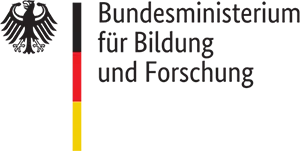Felix Schürmann is a historian specialised on maritime, global, and environmental aspects of African history as well as on human-animal relations under conditions of colonial rule and decolonization. Before his stay at MIASA he has worked as an interim professor for African History at the University of Hamburg and co-ordinated the research alliance “Mapping the Oceans: Towards a History of Globalisation as Seen from the Waters” at the University of Erfurt.
MIASA Project: The Rubondo Experiment: Islanding Wildlife during the Decolonisation of East Africa
Why did the end of colonial rule in East Africa did not entail a turn away from Western concepts of nature and strategies how wildlife should be preserved? What impacts did decolonization have for wild animals, and how did politics of nature affect the postcolonial condition? Through an in-depth investigation of the history of Africa’s first and largest conservation island, this project exemplarily explores wider relations between environmental transformation and the political, economic, and cultural facets of decolonisation. The transition of Rubondo Island (located in the southwestern part of Lake Victoria) from the home of the Banyarubondo fishing community to an intended ‘Noah’s Ark’ for endangered wildlife spanned the period from the eve of Tanganyika’s independence (1961) until the Uganda–Tanzania War (1978/79). Examining decolonisation and early independence from the perspective of environmental transformation contributes to assess the depth of the historical watershed and to understand wildlife as a factor that influenced early post-colonial politics.
Selected publications
– “Vom Kopf der Schlange zur Einheit der Welt: Kartierungen verschwimmender Übergänge an der Kongo-Mündung, 1859–1887.” Jenseits des Terrazentrismus. Kartographien der Meere und die Herausbildung der globalen Welt. Eds. Iris Schröder, Felix Schürmann & Wolfgang Struck. Göttingen: Wallstein, 2022: 267–301.
– (with Josephine N. Msindai, Christian Roos & Volker Sommer:) “Genetically Deduced Origin and Population History of Chimpanzees Introduced to Lake Victoria’s Rubondo Island.”Primates 62 (2021): 253–65. https://doi.org/10.1007/s10329-020-00884-5
– (with Wolfgang Struck, Iris Schröder & Elena Stirtz:) Karten-Meere. Eine Welterzeugung.Wiesbaden: Corso, 2020.
– “Eine neue Arche für die alte Ordnung: Die Tierumsiedlungen aus dem Flutungsgebiet der Kariba-Talsperre (Zentralafrikanische Föderation) und ihre fotografische Repräsentation, 1958–1963.” WerkstattGeschichte 82 (2020): 95–107.
– Der graue Unterstrom: Walfänger und Küstengesellschaften an den tiefen Stränden Afrikas, 1770–1920. (=Globalgeschichte, vol. 25.) Frankfurt a. M./New York: Campus, 2017.




